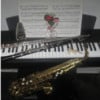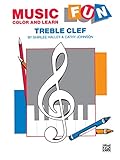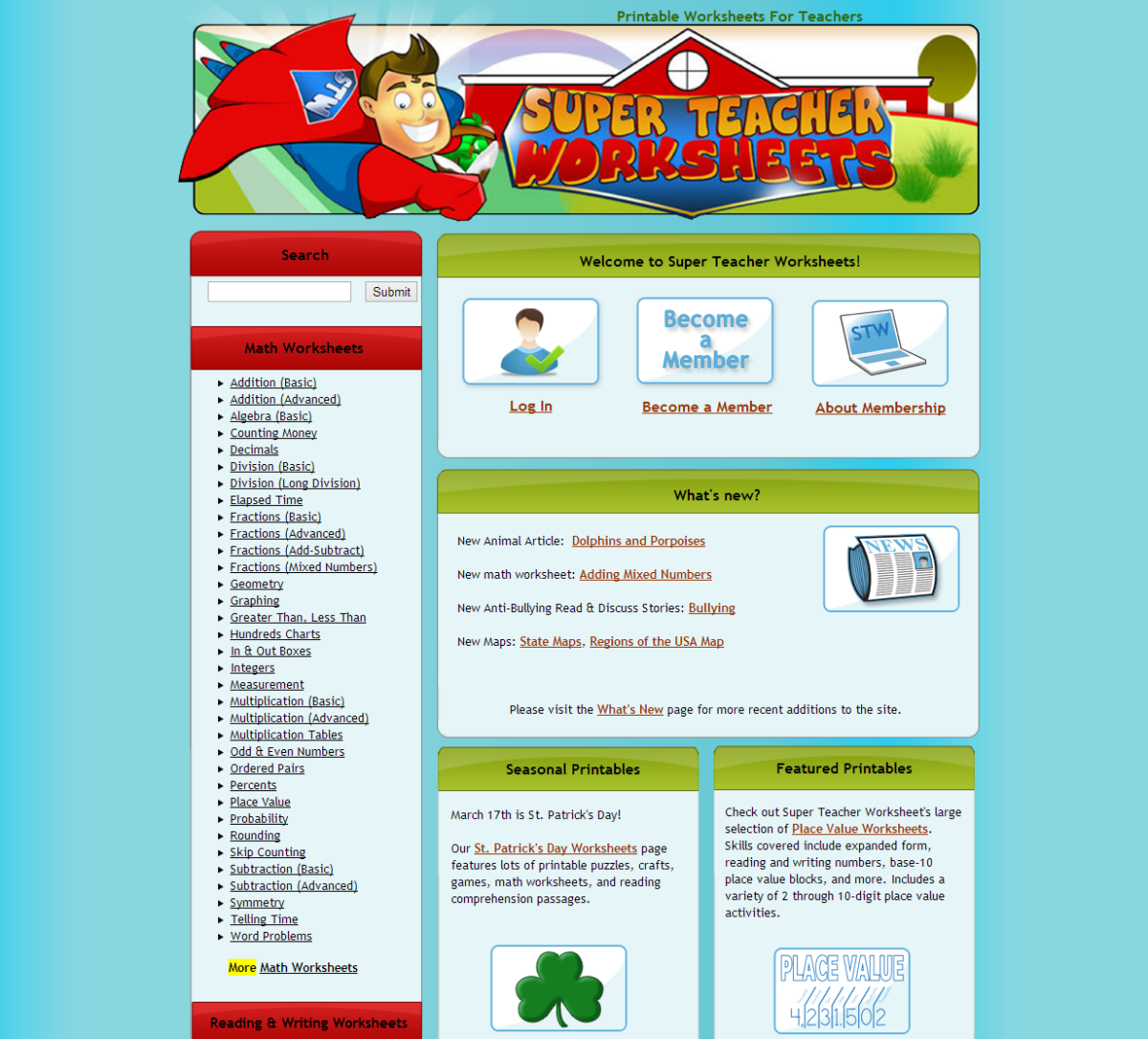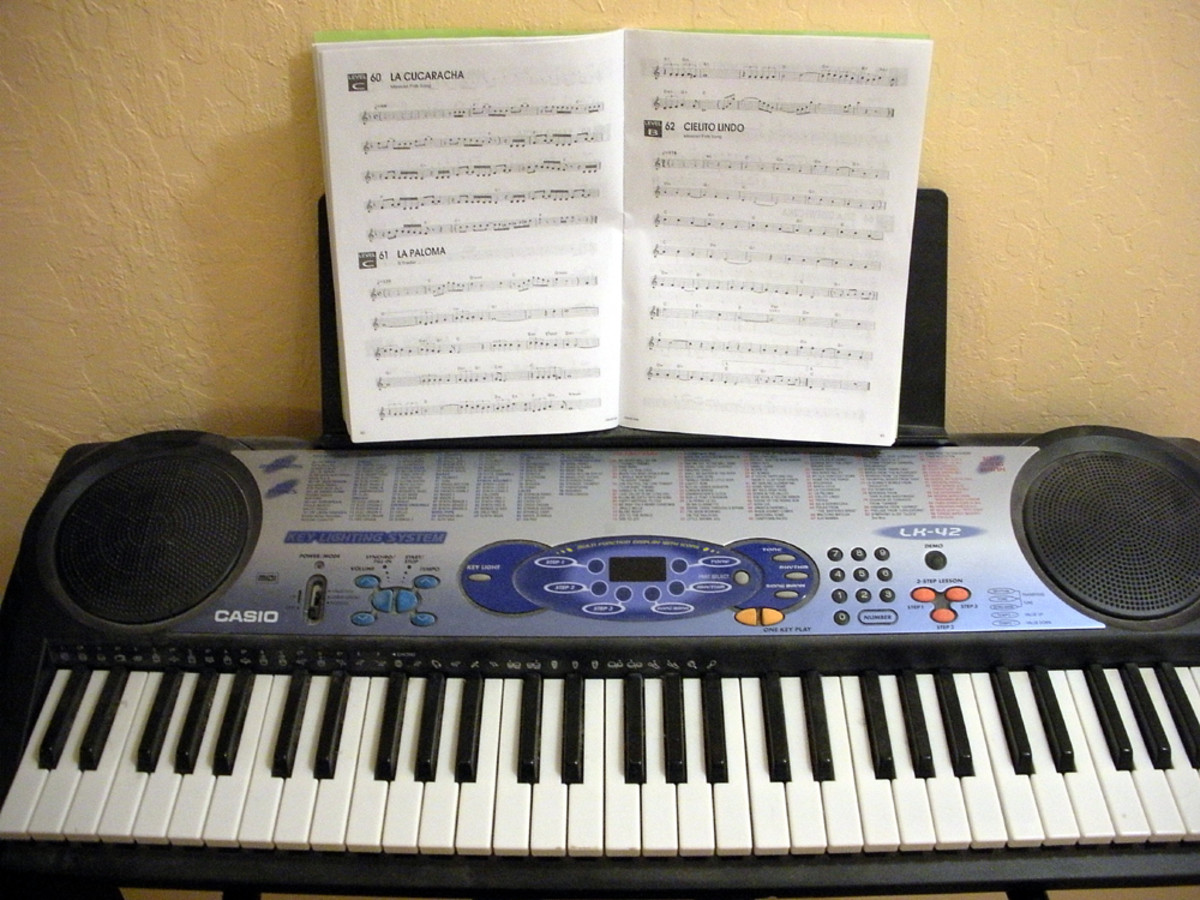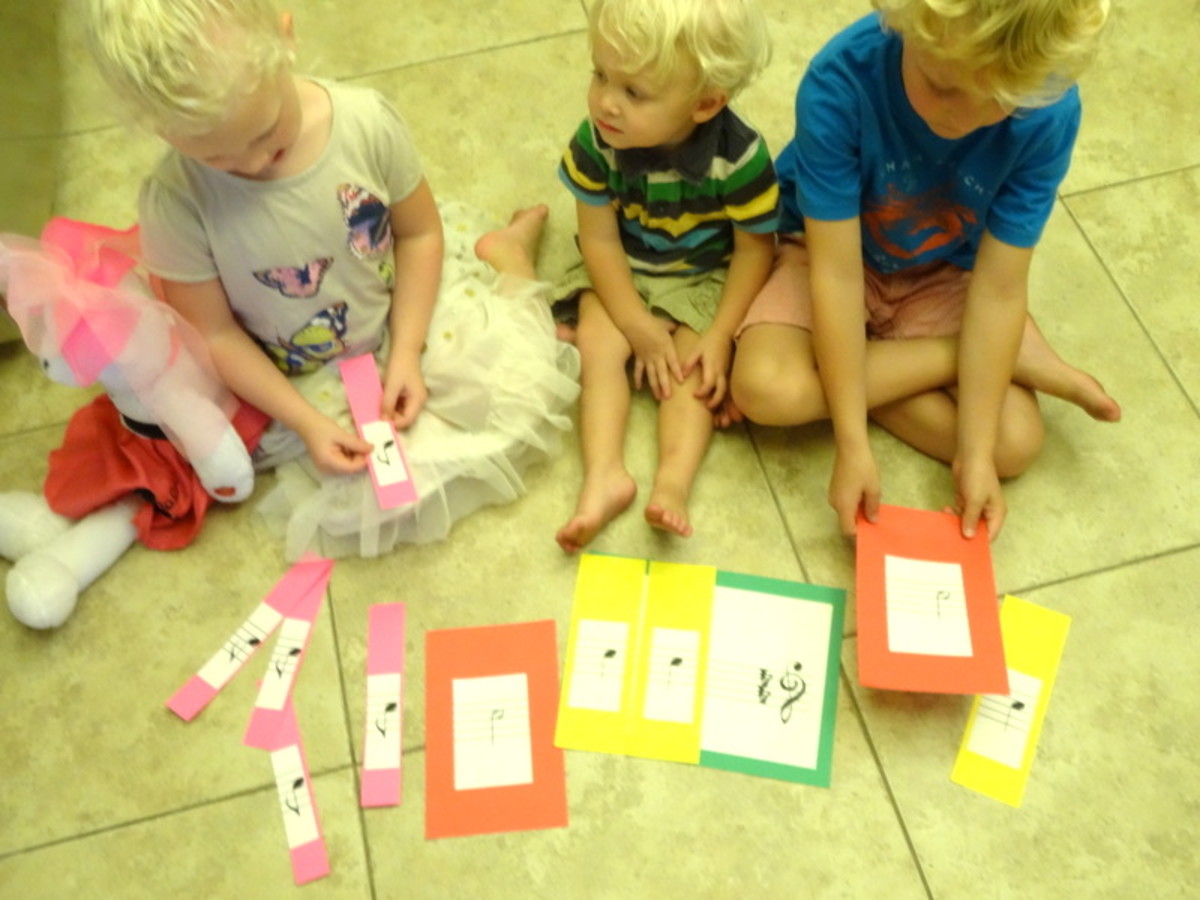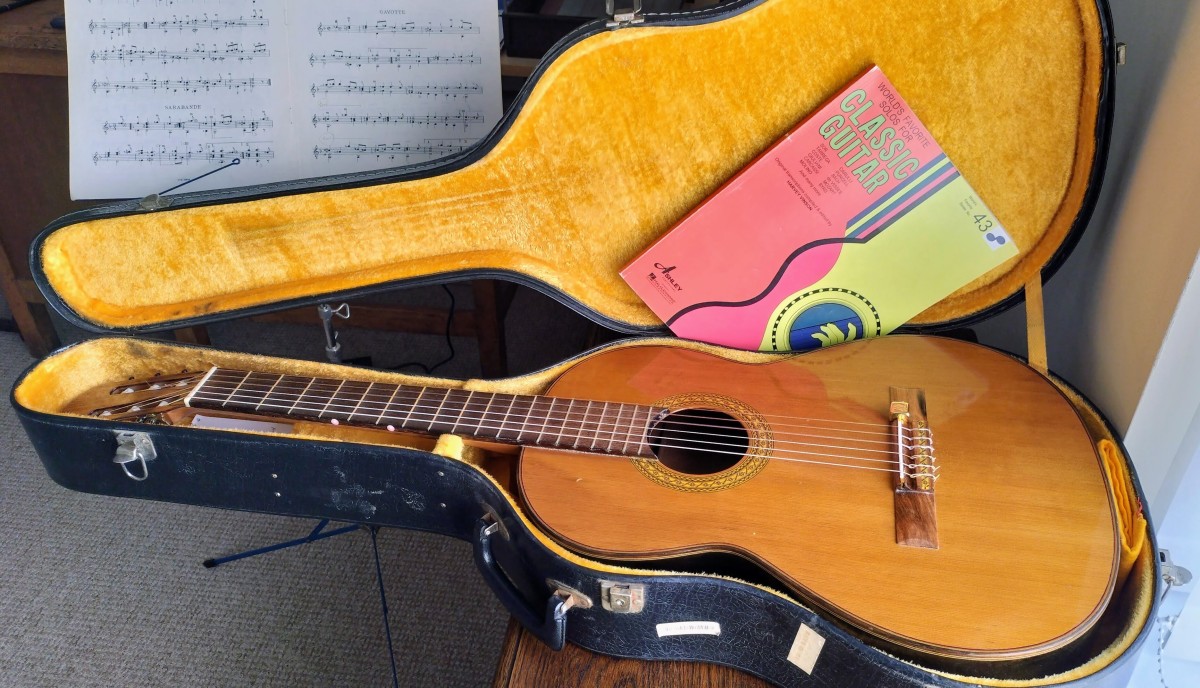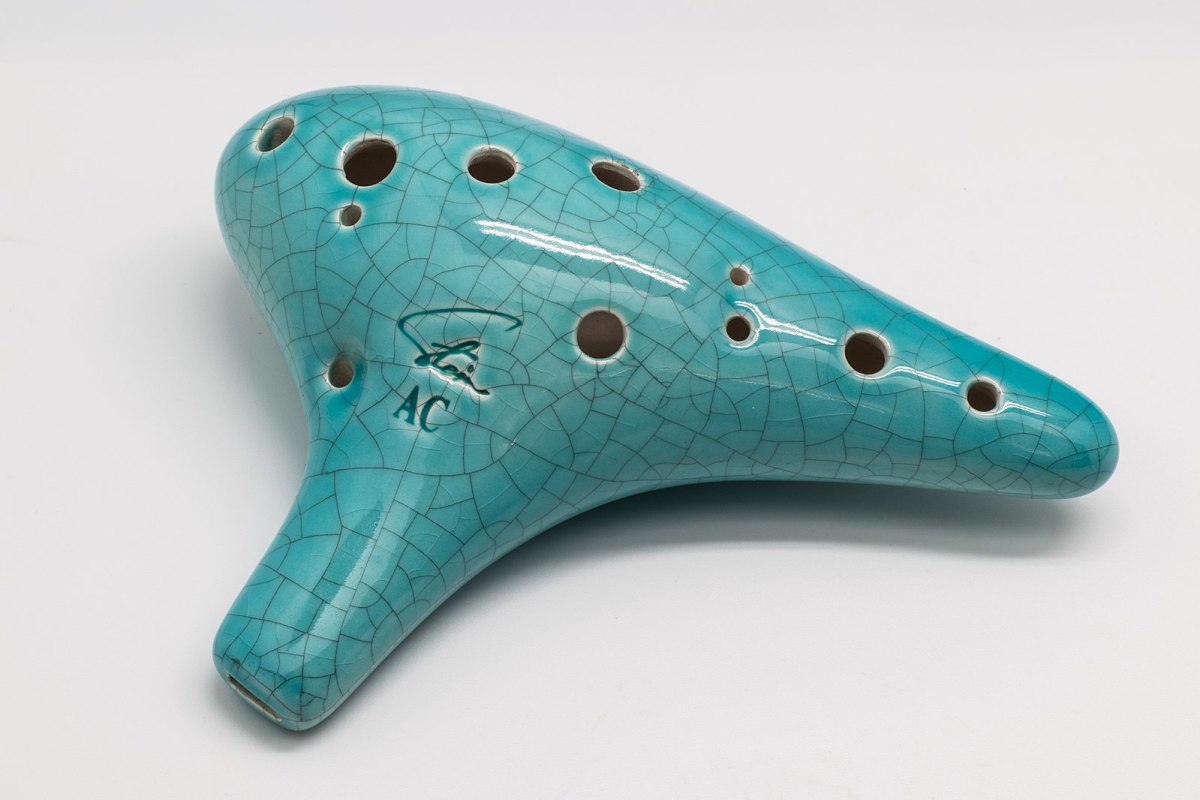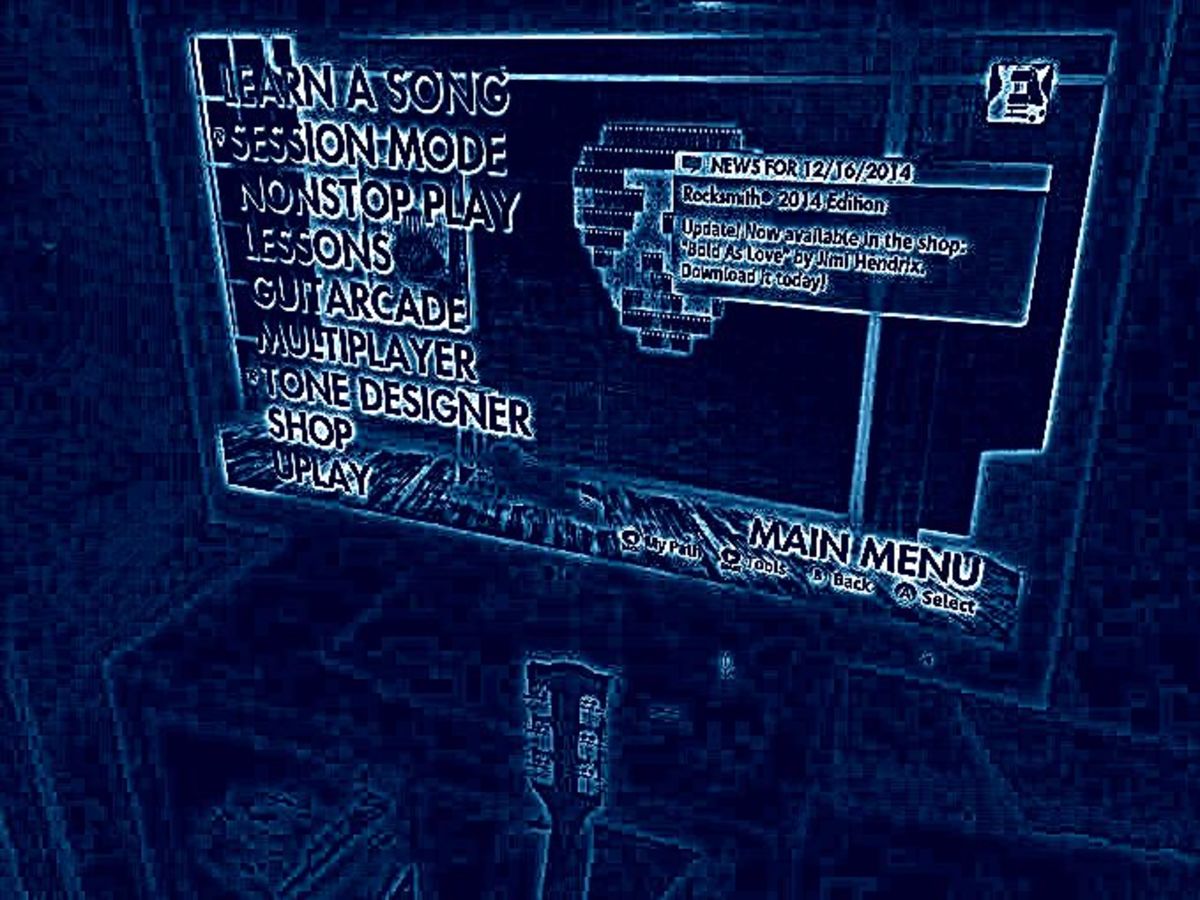Reading Music

Reading Music Notes on the Staff
Do you play music, but have wanted to learn how to read music or improve your skills? Here is a lens with resources and materials about reading pitches and rhythms for my students, anyone who wants to read music, and anyone who teaches music. My hope is that the resources will help and encourage you in your studies!
Playing by ear is fun to do and takes much talent, but only playing by ear can place limits on your musicianship. What if you want to share your song with others, or write it down to remember it? What if you wanted to play a song that you have never heard, or one that you can only remember a part of? Reading and writing the notes isn't any harder than reading words, and it can broaden your playing in many ways.
If you can already read music, but want to improve on your listening and reading skills, try these to help you grow into a more accomplished musician! There are several places for "reading" musicians to practice and improve listening / auditory skills of intervals, chord and chord progressions, and improvisation.
This Reading Music lens is joyfully dedicated to the current and past music students of J.O.Y. Music Studio! :D I hope this information helps you become the best musician you can be!
1st / 2nd year students - Try these, and have fun learning your notes!
Musical Notes Game (Harder! There are more in the games section below!)
Printable Note Name Flashcards
Online Musical Flashcards: Click on "Note Identification", choose treble or bass clef, click "Custom Range" and choose notes to study by clicking on the arrows (I would recommend entering the notes for G and / or C positions from the book instead of all of the notes yet), click on "Start Exercise".
Music Student & Teacher Resources
Join my Facebook page for a daily musical "note" about various aspects of music!
- Joyful Songs
My music education blog contains music units, lesson plans, lapbooks, worksheets, and games! I try to add a few new things each month, so please feel free to stop by frequently. :D - J.O.Y. Music Studio
If you are a parent or student of JOY Music Studio, please feel free to join my studio's private yahoo group. We will also be able to communicate easier to one another. Information sheets that I have given to the students, schedules for ensemble prac
Learning Music Theory
Music theory involves many different things besides reading notes on a staff. Melody, harmony, pitch, rhythm, expression, dynamics, tone color are just some of the things you can learn about. These web sites contain activities and lessons on more than one aspect of music. The * ones are the most fun and thorough, although a little more difficult. A few of them have adjustable setting to make them easier for children up to advanced! I hope you will find one or more of these useful!
- *Music Theory by Ricci Adam
Fantastic Online Tutorials! If you are serious about your musical studies, check this one out. The written text is simple and well written but thorough. The trainers are fabulous for helping beginners through advanced. Notice that you can change the - *Music Theory Web @ teoria
A great interactive site for learning and practicing music theory. It contains several pages of tutorials and games where you can adapt the settings to your preference and need. ~ Tutorials ~ Reading Music, Intervals, Scales, Chords, Harmonic Functio - *Online Music Theory Helper
Another one of my favorites! Definitely give this one a try if you want to improve your music theory and auditory skills! ~ Contains: Step by step music theory instruction from note reading through chord progressions ~ Fun Games: notes, keys, interva - *Music Theory @ Music Notes
~ Note Reading: Pitch, Values, Meter ~ Intervals & Scales: Intervals, Scales, Keys ~ Chords & Symbols: Triads, Inversions, Figured Bass ~ Expression Marks: Tempo, Dynamics, Style - *Music Theory Drills
~ Free Music Theory Drills: These are great practices for mastering note reading! ~ Name Drills ~ Piano Keys ~ Guitar Frets ~ String Fingerings ~ Rhythms ~ Key Signatures ~ Intervals ~ Scales ~ Chords ~ Counterpoint - Introduction to Reading Music
A nice place to start - contains the basic information to get going in your studies. - Free Music Theory Workbooks
The 19 chapters may be read online, printed out, or saved on your PC. You can also find virtual flashcards and other worksheets. Also check out their Harmonic Dictation and Contextual Listening sections for advanced students. - Wilbur's Music Tutorial ~ Theory & Practice Tips
~ Music Basics ~ Notes ~ Rhythm & Tempo ~ Putting It All Together ~ Advanced Rhythm - How Music Works
~ 9 free tutorials plus software you can download for purchase ~ Senior High+ ~ This would be easier for someone who already plays an instrument. - Basic Music Theory
436 page download (That's because this is just the basic course, wait until you get to advanced. Ahhhhh! Just kidding.) I didn't have time to look carefully, but it looks like tons of mini quizzes to use with the thorough textbook they have for purch - Flash Cards for Music
Notes on the staff, rhythmic values, and other musical symbols. - Basic Music Theory Elements
Several good articles to teach you music theory in the categories of: rhythm, notes, intervals, key signatures, scales, chords, and staff. - The Music Lab with the San Francisco Symphony Kids
Follow this colorful fun flash tutorial and games to learn and review numerous musical theory concepts. ~ Basics: staff, clefs, measures, time signature, beat, notes, pitch, duration, note values ~ Tempo: speed, pulse, Italian tempo terms (adagio, an - Music Theory Blog
Wonderful resources for beginners through advanced music theory!
Music Theory by Alfred Music Publisher - Thorough, fun, and easy to use!


Reading Pitches on the Staff
The two most important aspects of reading music are the pitches and durations of the notes. There is more, of course, but those two are good to start with. ~ This section has information to learn which notes to play when they are on those sweet little lines and spaces!
Many people like to use the following phrases to help them remember the note names on the staff. Although the phrases themselves don't mean anything, they are a mnemonic device designed to remember those line and space notes that can be confusing at first.
1 - Check the clef sign you are using. Treble clef is for the higher pitched instruments while bass clef is for lower pitches. Piano uses both clefs, also called the grand staff, to encompass the entire range of the instrument.
2 - Decide if the note you want to know is a line or space note. Line notes have the line cutting through the middle of them. Space notes sit between any two lines.
3 - Use the appropriate phrase by always starting on the bottom space or line and going up. In other words, if you want to know the note on the 4th line of the treble clef use the phrase "Every Good Boy Does Fine". Does is the 4th word, so the forth line from the bottom is D.
Treble Clef Lines = Every Good Boy Does Fine or Every Good Bird Does Fly = EGBDF
Think of birds flying in the sky to the higher notes on the treble staff.
Treble Clef Spaces = FACE (No phrase, just spell the word!)
Remember SPACE = FACE
Bass Clef Lines = Good Boys Do Fine Always = GBDFA
Bass Clef Spaces = All Cows Eat Grass = ACEG
Think: Cows are on the ground near the lower or bass notes.
These traditional phrases can help, but the biggest problem I see as a teacher is that students get them mixed up as to which one to use. Therefore I have a few suggestions to share that have helped my students over the years:
4 - Create your own phrase that has meaning to you. Sometimes the creative process of thinking the letters and coming up with a special (or funny) phrase keeps it in the memory.
5 - Most teachers and books only introduce a few new notes at a time. What I would strongly suggest is spending time each week memorizing those few notes, then reviewing them frequently as you learn new notes. Two or three notes per week is much easier than trying to remember them all at once! When you learned how to read words, you didn't recognize all 26 letters, their sounds, groupings, and spelling all at once. You probably learned the letters by sight over time, then sounds, small words, word families, etcetera, until you were able to read and understand bigger words. It is exactly the same in reading music. Start with a couple notes then build up to reading note patterns, scales, chords, and chord progressions.
Suggestions to help learn the notes:
- make flashcards to study every day (several sites below provide free ones for you to print out);
- read and check the notes in your songs each time you practice;
- write the notes on a staff and label them (links to blank staff paper may also be found below);
- create and / or play a game with them (challenge a friend or family member to name ten flashcards correctly in the shortest amount of time or make two sets of cards and play a "Concentration" type game, etcetera);
- purchase one of the many music theory books and work through it (many suggestions throughout this page). They come in levels from pre-school through adult. Many of the ones for kids are colorful and fun!
6 - It will not happen overnight! As with anything that you want to do well, you must work on frequently for more than a few days or even weeks. With patience, time, and dedication, I promise it will get easier. You WILL be able to read music when you give it a fair chance! =D
- Treble Spaces & Lines, Bass Spaces & Lines
Click on the pages you are interested in . This is very easy to see and hear the treble clef notes. A fun simple song helps to remember the notes. This can be read and heard online; or you may print or save a pdf of the info. - Treble Clef Virtual Flashcards
Read the note on the staff and check your answer. - Bass Clef Virtual Flashcards
Read the note on the staff and check your answer. - Above the Staff Virtual Flashcards
Read the note on the staff and check your answer. - Below the Staff Virtual Flashcards
Read the note on the staff and check your answer. - Above & Below the Staff
Read the note on the staff and check your answer. - Note Names Online Flashcards
Choose the clef (treble, alto, tenor, or bass), whether or not you want ledger line notes, and if you want flats and sharps to appear on the notes. Then study away! ~ Look on the left of the page at "Music Theory Flashcards" to find other aspects of - Sheet Music
~ Note Reading Worksheets ~ Tests ~ Lots of free and to purchase sheet music - Learn to Read Music
Learn about basic note reading skills at ArtsyFartsy. - Note Reading Games by Piano Pedagogy Plus
Simple but thorough flash games to practice reading notes on the treble, bass, and c clefs!
Piano & Music Theory

Music Theory for Guitarists

Reading Rhythms on the Staff
The duration of each note you play is pretty important! To see what I mean, sing an easy song you know. Now sing it holding some notes out longer, or making some notes shorter, or a combo of both. Although the same pitches are used, a different pattern of note values (called rhythm) can totally change a piece of music.
Try these links to learn more about types of notes and their values, how they make patterns, and how to count rhythms.
- Music Press Distress!
Fun game for kids! After showing you notes and values, you may help the octopus sort the falling notes into the appropriate bins - yes, I said 'octopus'! - Note & Rest Duration Flashcards
Answer the questions about note values. - Fill The Measure Note Durations Game and Cards
A game to print and play to help reinforce note values and time signatures.
Music Games Make Learning Fun!

Fun for Kids!!
When children are having fun doing something, they are learning! The information is more likely to 'stick' with them when it has been an enjoyable experience. Here are a few more books students have liked to use!
Jazz Music Theory - Blues Scales, Jazz Chords, & More
Music theory for classical and jazz music are basically the same ~ with a few twists for jazz, blues, and rock! Try these to learn more about jazz foundational chords, scales, and progressions.
- Jazz Resource Center
*Jazz Theory ~ Chord Symbols, Dominants & Subdominants, Scales - A Simple Approach *Jazz Tools ~ Piano Voicings A Systematic Approach, Transcription Series *Jazz Masters ~ McCoy Tyner, CD Reviews - The World of Jazz Improvisation
"The series of articles below is part of the syllabus for Jazz Improvisation courses MUS 331,332 and 530 at the University of Wisconsin Madison. Instructor: Prof. Joan Wildman" - Learn Jazz Piano
Yes, I know it is for jazz piano, but I think all types of instrumentalists will benefit from the information presented! - Michael Furstner's Jazclass Courses
Numerous free lessons about music theory and history are found here along with ones for purchase.
Ear Training - Improving Your Aural Skills!
Now, what do you do if you read music, but want to improve your listening skills to play by ear? Perfect pitch is a blessed talent only few seem to possess, but most people can train themselves to have better listening skills.
A great many of the websites under "Learning Music Theory" have ear training programs to practice your listening skills that you may want to take a look at! :)
- Interval Identification
Click to listen to two notes, then identify the intervals or distances between the pitches. See the music theory section above to learn what M2, P5, etc. mean. - Big Ears: The Original Online Ear Trainer
Listen to drills and identify them.
Flashcards & Bingo Make Learning Fun!!!
Playing games is a great way to have fun, learn, and review what you know!! These are all games which are fabulous in a general music classroom, music studio, or home. I have used these numerous times in the classroom, small group sessions, and private lessons. They are both great resources for students to use at home with their families, also.
Music Reading Games - Free Online & Printable Games!
Some of the below sites have online music games, others have materials for you to print out. They are all free as far as I know. If you are a music teacher or parent who has created other games you would like to share, just let me know in the comment box, or the list above.
- Joyful Songs
Check out my little place on the web for music games, lessons, and resources. "Count the Beats" Game Music Math Time Signature Game Woodwind Board Game and Card Games Music Soccer - game for reading notes - Eek! Shark!
Choose to play this fun game with treble or bass clef. Three note names must be collected quickly to match the notes on the staff or you will be caught by sharks! - Music Press Distress!
Help Oliver the Octopus collect whole notes, half notes, quarter notes and more from the crazy music printing press, and put him put the notes into their correct places! - Mystery Message Game
A gameboard and lesson plan are found here. - Music Manipulatives
Click on 'Games & Resources" ~ There are so many cool things that I don't know where to start. My favorites are all the flashcards and printable games for music education! Mrs. Layton has very creative and fun ideas! - Very Cool Flashcards & Games!!
Mrs. Paradis has numerous songs and sheet music for beginning pianists that she composed to print for free. There are also gorgeous worksheet pages, games, and teaching aids for music theory. Activities and materials to encourage composition are foun - Music Notation Bingo Cards
They have a trial version of free printable cards, or you can make your own. - Musical Notes
Earn 100 points for every note you identify correctly and match with it's piano key. The notes are written in both treble and bass clef and include sharps and flats. It starts easy and becomes harder on each level. The player gets 5 "lives" marked by - Music Match Game
Match notes on the staff to the keys on a piano keyboard with the cute mouse! :)
Fun Printable Worksheets and More!
- Note Name Worksheets
These are from a wonderful music education website called "Making Music Fun". The title says it all! Worksheets: Color That Note with Charlie the Shark - Don't worry, he looks friendly! Ready! Set! Go! - Speed Tests - 4 versions - Pick the clef you - Free Manuscript Paper
Several varieties of staff paper to print out for practicing reading and writing notes, or for composing your own piece of music! - Music Interval Worksheets
Knowing intervals and patterns make it easier to read music! Practice reading intervals (distances between notes) with these worksheets. - Making Music Fun Songbook!
Free printable sheet music in many styles ~ these simple songs can be used to practice reading notes, to sing, or to play on your instrument. - Music Images
So many beautiful resources! These are some of the nicest music flashcards I've seen on the web. For reading music: ~ Music Notation Symbols ~ Free Printable Music Flashcards & Handouts ~ treble and bass clef notes, note values, dynamics, major v - Rhythm & Note Flashcards
Currently under construction ~ I'll let you know when it comes back on. ~ Great stuff! - Montessori Music Materials
~ Instrument Cards: Brass, Percussion, String, Woodwind, World Instruments ~ Composer Cards ~ Music Notation Cards: All types of music theory symbols. ~ Music Manipulatives: Staff board and notes to place on it. ~ Music Timeline Demo
Music History & Appreciation
Other music units I wrote for my children, students, and fellow educators. :)
- Teaching Music with Artistic Combinations
Music is related to every school subject which is why I try to include many different topics along with the musical aspects. This article gives suggestions how to connect music concepts into the other arts. - Musical Dancing Elephants!
A musical unit using "The Elephant" from Carnival of the Animals by Camille St. Saens! You will also see a link to an entire "Elephant" unit for science, math, language arts, art, character, and more that I wrote for Homeschool Share. - Mozart Unit Study ~ Lapbook & Notebook Materials
Based around Wolfgang Amadeus Mozart, this unit study at Homeschool Share contains activities, notebooking and lapbooking materials, and more for almost every subject: Language Arts (reading, grammar, verbs, prepositions, synonyms and antonyms, and i - Christmas Music!
Tons of links to Christmas music resources along with other curricula areas: math, science, social studies, art, language arts, Bible, and many fun activities!
